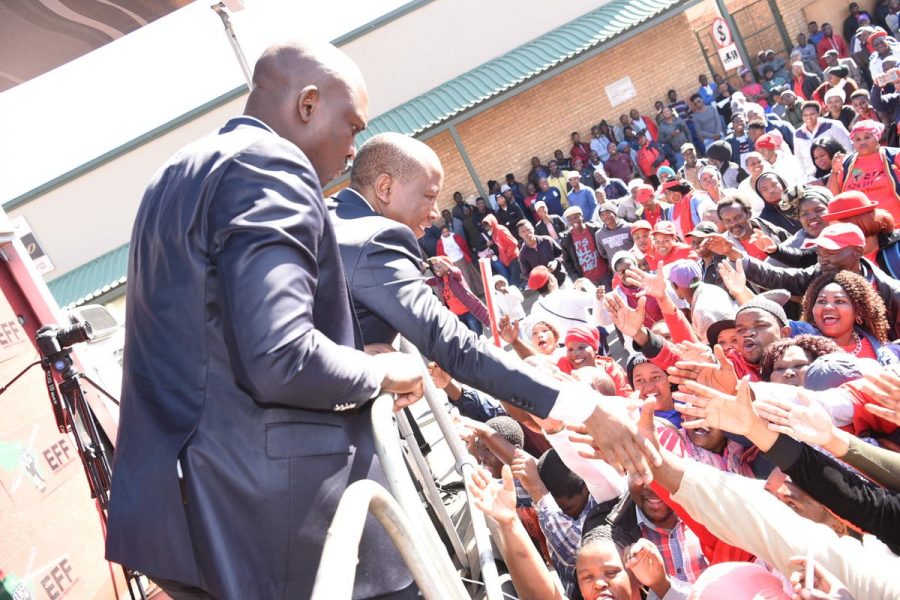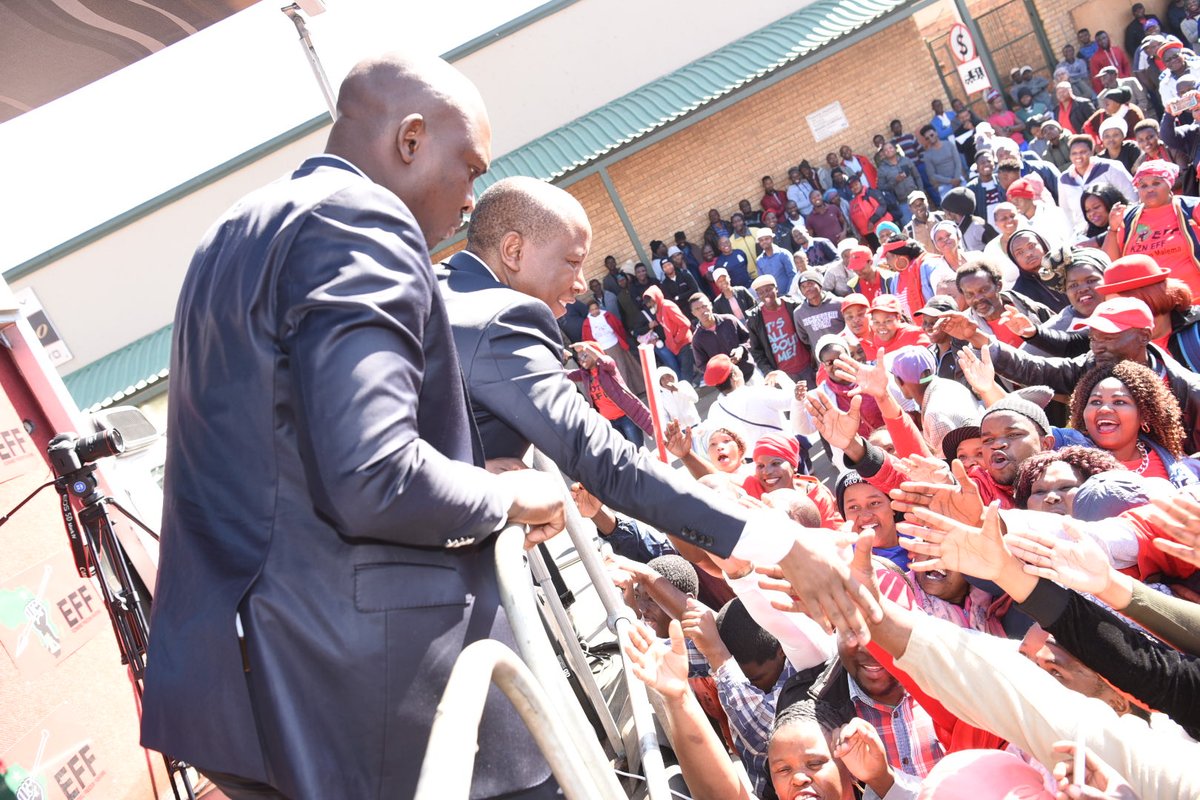
Julius Malema’s Court Case Postponed
Economic Freedom Fighter (EFF) leader Julius Malema encouraged supporters to continue fighting for the land and against the oppression of black people, as his court case for allegedly inciting land grabs was postponed. Malema was addressing a crowd outside the Newcastle Magistrates Court on Monday where he appeared for allegedly inciting illegal land occupation. The […]

Economic Freedom Fighter (EFF) leader Julius Malema encouraged supporters to continue fighting for the land and against the oppression of black people, as his court case for allegedly inciting land grabs was postponed.

Malema was addressing a crowd outside the Newcastle Magistrates Court on Monday where he appeared for allegedly inciting illegal land occupation. The case has been postponed to 25 February 2019.
Malema, who faces criminal charges relating to his alleged contravention of the Riotous Assemblies Act, has promised to challenge the constitutionality of the Act under which he’s charged.
During his address to the crowds yesterday, Malema called Jacob Zuma “the domkop president” and referred to black journalists who are critical of the EFF as being ” house n****rs”.
Of his recent comments about Indians, he said: “I’m not fighting with Indians. I’m saying to them: you were oppressed better than us. You had water, you had electricity, you had tarred roads, you had Indians schools, you had shops and you had all sorts of things.”
Malema pointed out that when he said the “majority of Indians are racists” he was effectively meaning 51% or more, whereas “when former Constitutional Court Judge Zak Yacoob said that 90% of Indians were racist, he was not taken to task”.
Malema’s charges relate to his 2014 speech at the EFF’s elective conference in Bloemfontein, where he said: “We’re going to occupy the unoccupied land because we need land. For us to eat‚ we must have the land. For us to work‚ we must have the land. I come from Seshego. If there is unoccupied land‚ we will go and occupy the land with my branch. You must go and do the same in the branch where you come from.”
CIC @Julius_S_Malema with Fighters outside the Newcastle Magistrate Court this morning. #LandOccupation pic.twitter.com/37tnlLvKav
— Economic Freedom Fighters (@EFFSouthAfrica) June 25, 2018
